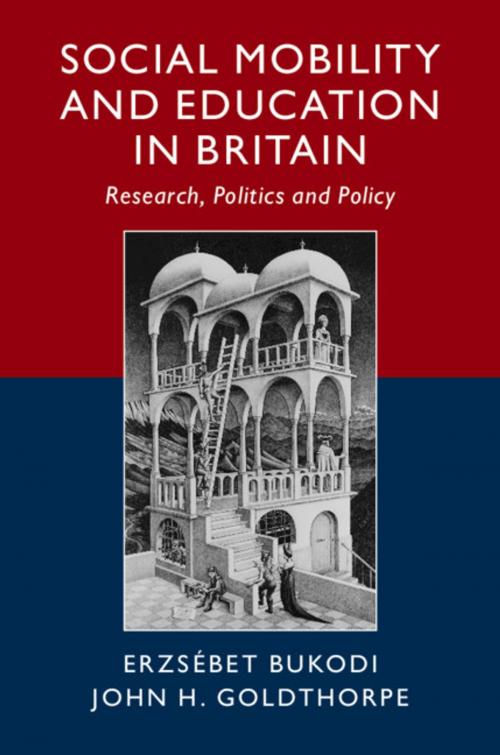Social Mobility and Education in Britain
Research, Politics and Policy
Nonfiction, Social & Cultural Studies, Social Science, Sociology, Political Science| Author: | Erzsébet Bukodi, John H. Goldthorpe | ISBN: | 9781108672375 |
| Publisher: | Cambridge University Press | Publication: | November 30, 2018 |
| Imprint: | Cambridge University Press | Language: | English |
| Author: | Erzsébet Bukodi, John H. Goldthorpe |
| ISBN: | 9781108672375 |
| Publisher: | Cambridge University Press |
| Publication: | November 30, 2018 |
| Imprint: | Cambridge University Press |
| Language: | English |
Building upon extensive research into modern British society, this book traces out trends in social mobility and their relation to educational inequalities, with surprising results. Contrary to what is widely supposed, Bukodi and Goldthorpe's findings show there has been no overall decline in social mobility – though downward mobility is tending to rise and upward mobility to fall – and Britain is not a distinctively low mobility society. However, the inequalities of mobility chances among individuals, in relation to their social origins, have not been reduced and remain in some respects extreme. Exposing the widespread misconceptions that prevail in political and policy circles, this book shows that educational policy alone cannot break the link between inequality of condition and inequality of opportunity. It will appeal to students, researchers, policy makers, and anyone interested in the issues surrounding social inequality, social mobility and education.
Building upon extensive research into modern British society, this book traces out trends in social mobility and their relation to educational inequalities, with surprising results. Contrary to what is widely supposed, Bukodi and Goldthorpe's findings show there has been no overall decline in social mobility – though downward mobility is tending to rise and upward mobility to fall – and Britain is not a distinctively low mobility society. However, the inequalities of mobility chances among individuals, in relation to their social origins, have not been reduced and remain in some respects extreme. Exposing the widespread misconceptions that prevail in political and policy circles, this book shows that educational policy alone cannot break the link between inequality of condition and inequality of opportunity. It will appeal to students, researchers, policy makers, and anyone interested in the issues surrounding social inequality, social mobility and education.















